Coronavirus: Indian cities go eerily quiet as cases rise
- Published
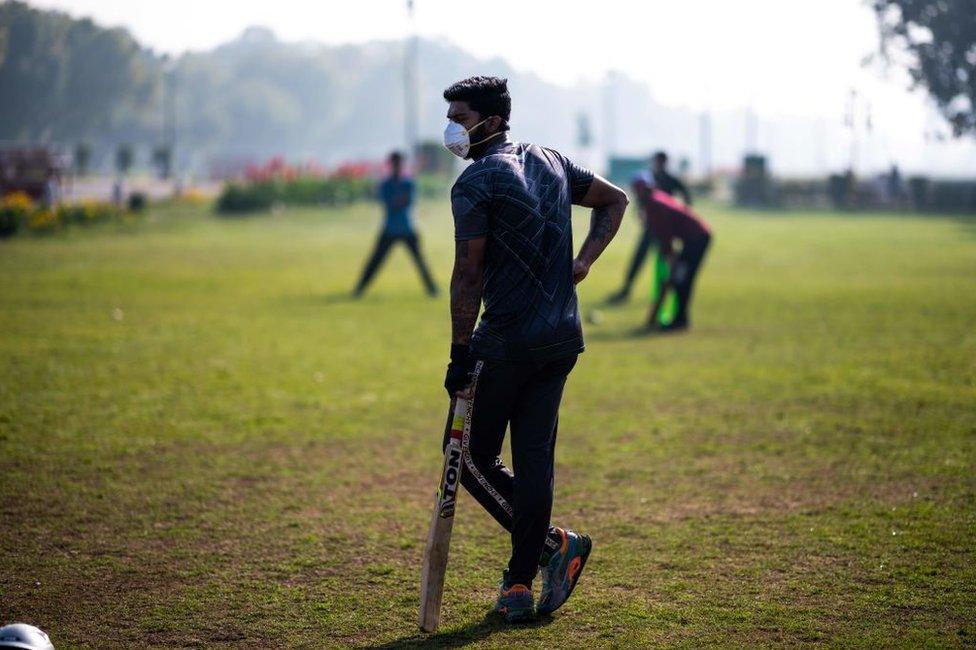
Small groups of young people can be seen playing sports as schools, colleges and even gyms are shut.
Life in India has changed dramatically as the world's second-most populous country grapples with the coronavirus outbreak.
Otherwise crowded and chaotic cities have quietened down as people stay home, traffic slows and even weddings shrink in size and scale.
India has confirmed 151 active cases and three deaths - but public health experts fear that the low count is the result of limited testing and under-reporting. The country has only conducted about 12,000 tests so far, partly because of a shortage of testing kits.
So it's still unclear if and to what extent community transmission exists in India - community transmission means a patient had no known contact with another confirmed case or travelled from a country badly affected by the pandemic.
However, India's central government, several state governments and city administrations have already responded with drastic measures.
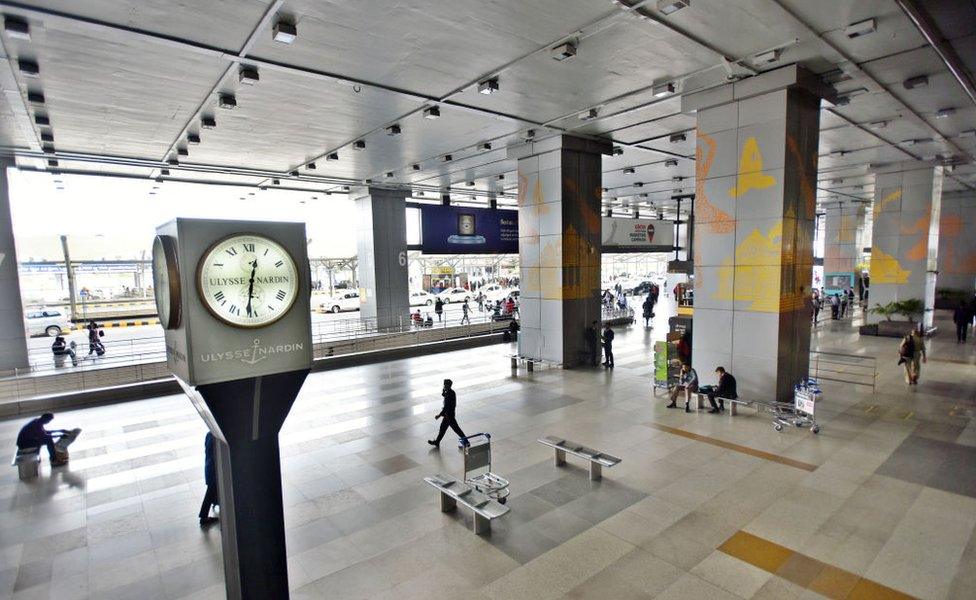
The Indira Gandhi international airport in the national capital Delhi, is the country's busiest airport but it appears deserted nowadays.
India has barred entry to everyone, including citizens, flying from certain countries, including the UK and most European nations. It has also cancelled most entry visas to people (excluding citizens) flying in from other countries.
This has led to numerous flight cancellations.
Airlines are also struggling as fewer people are flying even within India, wary that new regulations could see them stranded away from their homes. Two of India's top airlines are reportedly considering grounding planes amid plummeting demand for flights.
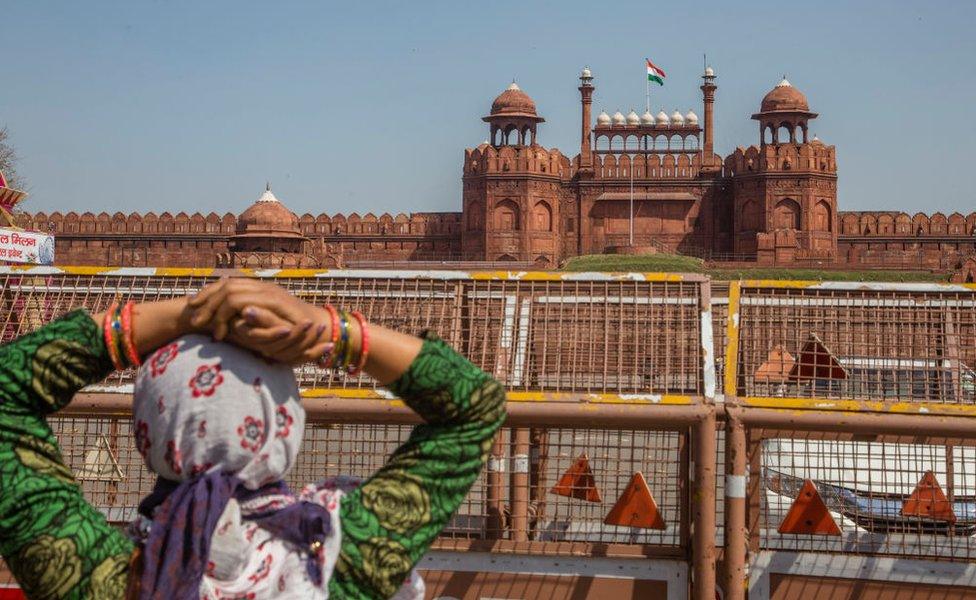
Popular Indian monuments - such as the 16th Century Red Fort in Delhi - have been shut to visitors to prevent large gatherings.
Taj Mahal, the country's most iconic monument, closed its doors on Tuesday, along with more than 140 other monuments and museums.
With fewer people visiting and closures of public places likely to go up, tourism is expected to take a huge hit across India - the Taj alone draws as many as 70,000 people a day.
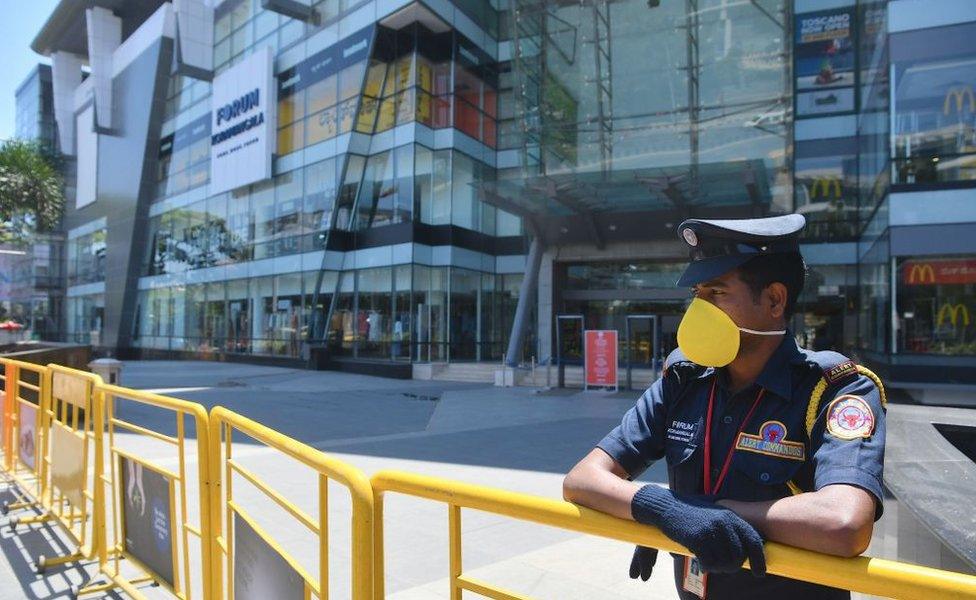
Bangalore, an IT hub in southern India, is among the major cities that has shut down its malls - such as the one above - and schools, colleges, cinema halls and other public places have been closed since late last week. Other major cities such as Delhi, the financial hub Mumbai and Hyderabad in the south, have done the same.
City officials have also imposed restrictions on large gatherings such as weddings, cricket matches or any public ticketed events.
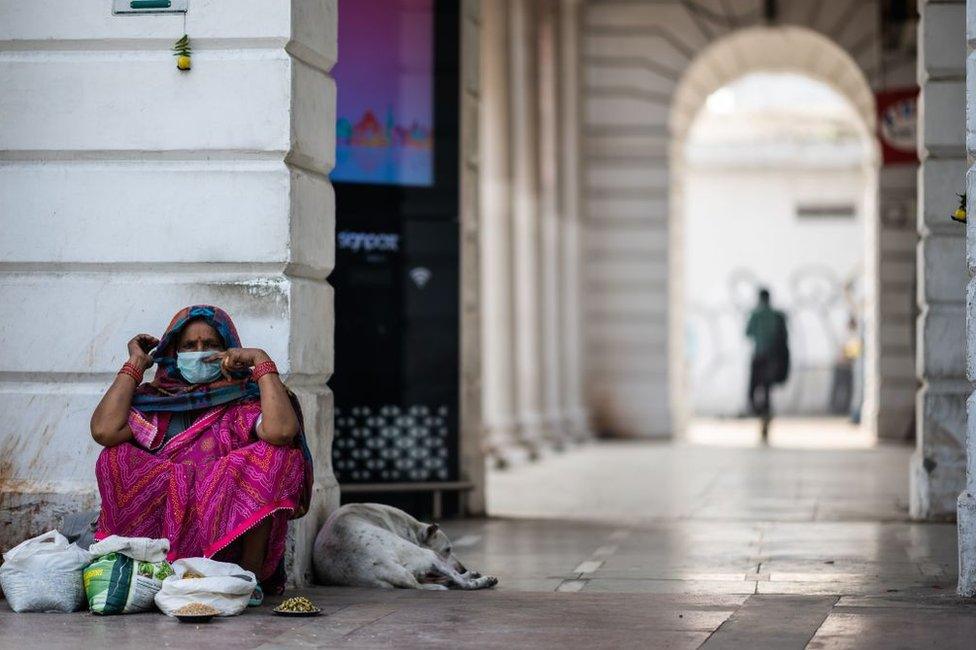
Some of Delhi's busiest spots, such as Connaught Place, are mostly empty.
There has also been a significant drop in the number of people using trains, which remain the most popular form of transport in India.
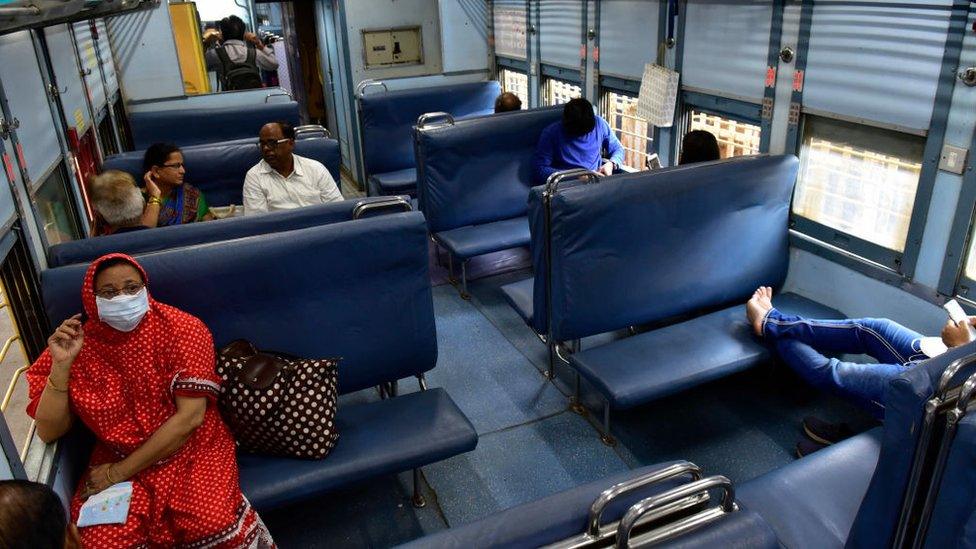
The service from Mumbai to Pune city - which takes about three to four hours - has seen about a 30% fall in passenger traffic, according to some estimates.
The western state of Maharashtra, where both cities are located, has reported the highest number of cases in India so far. The central railways has already cancelled 23 long distance trains going to and from Mumbai - officials say the reason is both the virus and the lower number of passengers.
Overall, more than 150 trains have been cancelled across India. This number could increase in coming days.
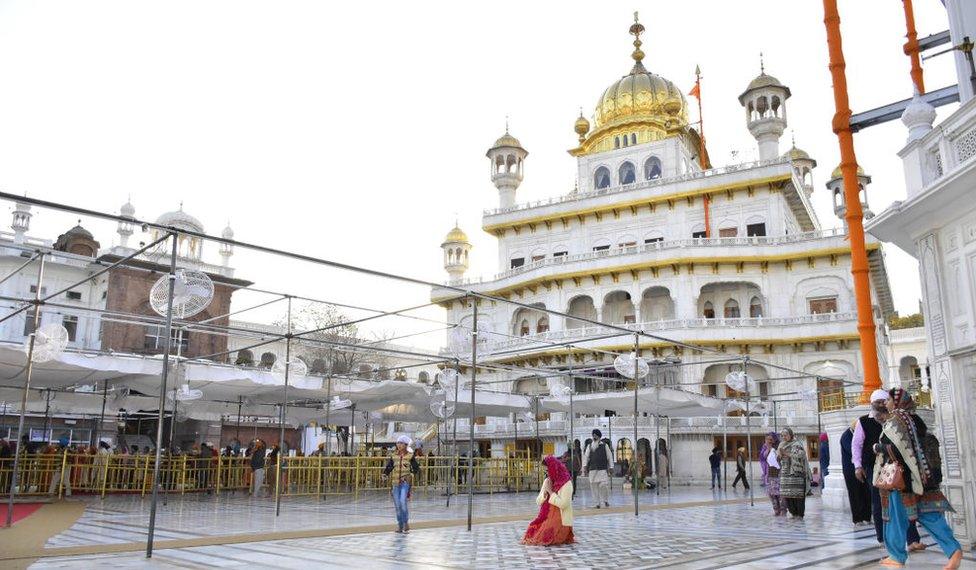
Many holy sites, including the Golden Temple - one of the holiest shrines in Sikhism - remain open, although the footfall is much lower. It's quite unusual to see such few people in what is one of India's busiest shrines.
Tirumala Tirupati, the richest Hindu temple, has cancelled many of its daily rituals and is restricting the number of pilgrims for the first time.
Some major Hindu temples, such as the Siddhivinayak temple in the heart of Mumbai, and the Vaishno Devi cave shrine, have closed.
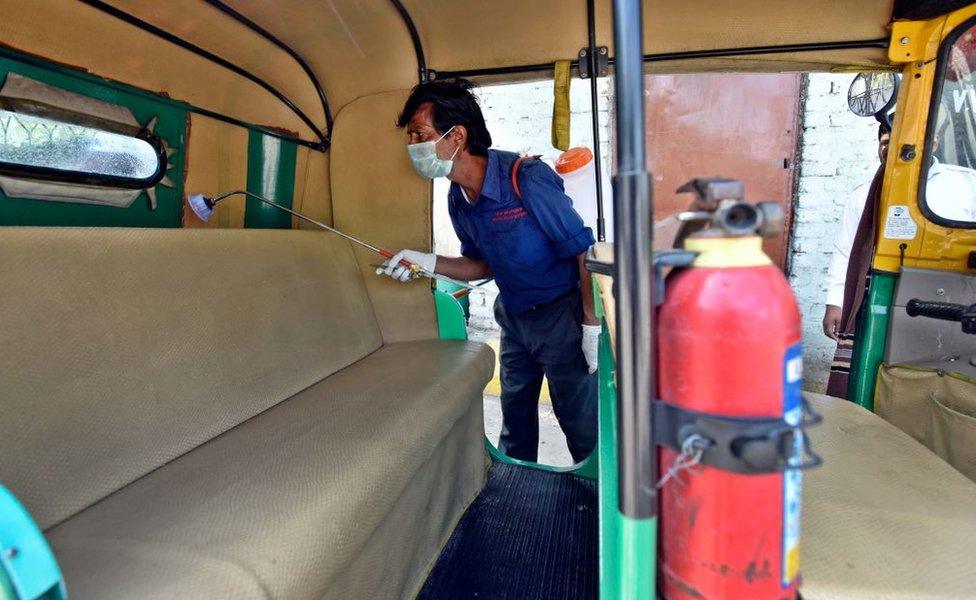
City officials in Delhi have begun sanitising auto rickshaws and taxis to contain the spread of the virus.
Public transport poses a major challenge to containing the outbreak. But it continues to be used regularly across India, even as governments encourage people to stay home as much as possible.
But not all offices have work from home options, and this is especially a challenge for the millions who work in India's informal sector - these include domestic help, street vendors and daily wage workers.
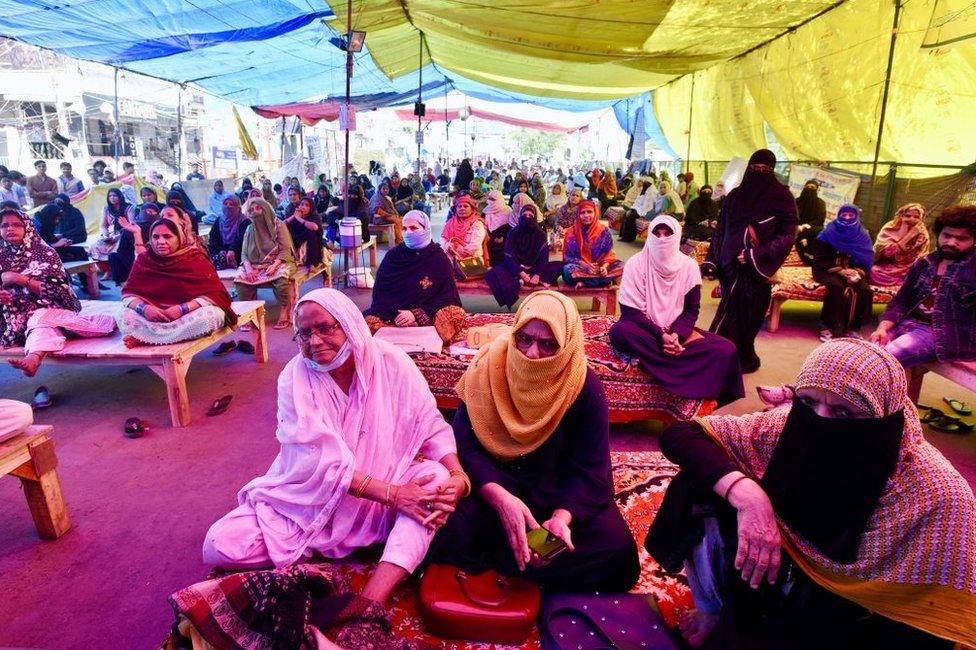
Surprisingly, sit-in protests against India's controversial new citizenship law continue in some cities, including Delhi and Bangalore.
The most prominent of these, pictured above, is happening in Delhi's Shaheen Bagh neighbourhood. Thousands of protesters, mostly Muslim women, have been demonstrating against the law, which critics say is anti-Muslim, since December.
But Delhi has shut down schools, colleges, gyms, night clubs, spas and swimming pools - and Chief Minister Arvind Kejriwal has said all social, political and religious gatherings with more than 50 people would be stopped.
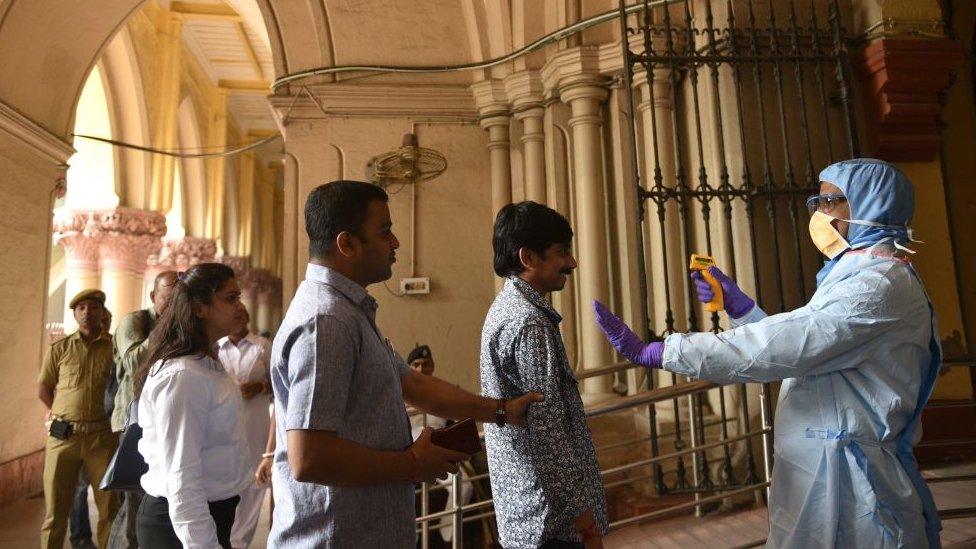
Temperature checks have become a common feature across cities - here, people are being screened before they enter the high court in the eastern city of Kolkata (formerly Calcutta).
This practice has been adopted at airports, corporate offices and several other places that remain open despite the restrictions.
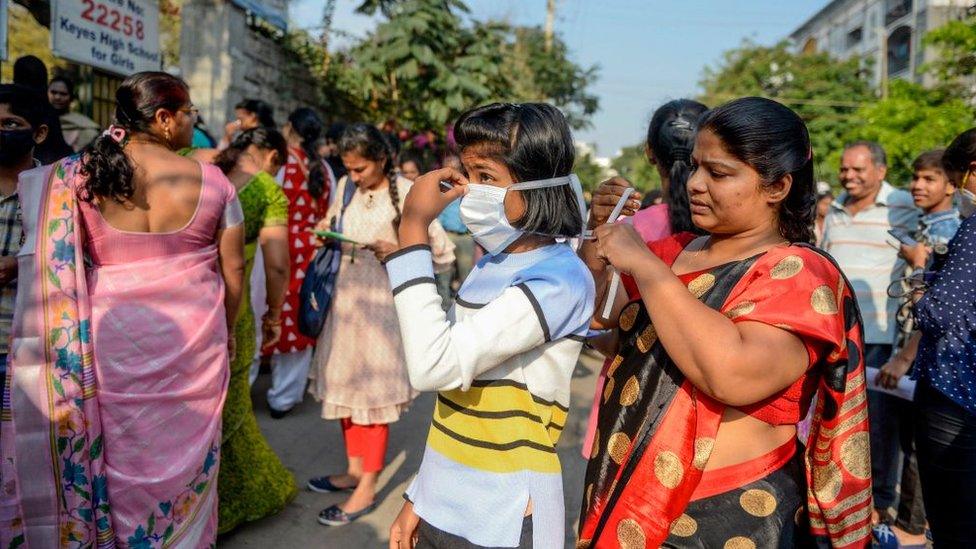
In the southern city of Hyderabad, students appeared for their school-leaving exams, but they came armed with masks.
Delhi, however, has postponed all school examinations.
Experts say India could impose more sweeping lockdowns as the toll climbs further.

Read more about the coronavirus

- Published15 March 2020

- Published7 March 2020